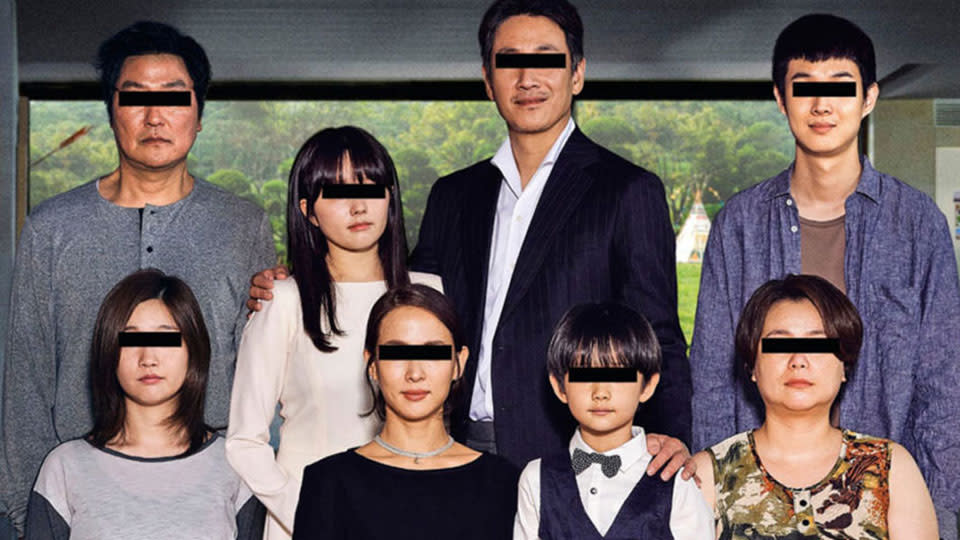Lee Sun-kyun’s Cause of Death: He’d Been Under Police Investigation

He was only 48, so there’s a lot of speculation about Lee Sun-kyun’s cause of death. The actor, a familiar face on Korean television and movie screens, is perhaps most famous for the critically acclaimed film Parasite, which swept the 2020 Oscars including Best Picture—the first non-English-language film to take home the award.
Directed by Bong Joon-ho, Parasite is a dark comedy thriller that explores themes of social class, inequality, and the consequences of greed. The story goes like this: The Kim family, struggling with unemployment and poverty, lives in a cramped basement apartment in Seoul. The son, Ki-woo, gets an opportunity to tutor the daughter of the wealthy Park family, thanks to a recommendation from a friend. This sets off a chain of events as Ki-woo gradually infiltrates the Park family’s household, securing jobs for other members of his family through deceitful means. Lee played the wealthy family’s patriarch, Park Dong-ik.
More from StyleCaster
Is 'Parasite' Based on a True Story? These Clues From The Director's Life Have Us Convinced
This Oscars Voter Had a Racist Reason for Not Nominating 'Parasite' & Twitter Is Not Here for It
As the Kim family members become employed by the Parks, they exploit the oblivious family’s trust and gradually replace the existing staff. The film takes unexpected twists as the Kim family’s scheme becomes increasingly precarious. Tensions rise, and the movie takes a darker turn as it explores the consequences of social and economic disparities.
After he was found unresponsive in a car in a parked vehicle in central Seoul just before 11 am (local time) on Wednesday, December 27, 2023, Lee Sun-kyun’s cause of death is the subject of a police investigation. Here’s what we know.
If you or someone you know is experiencing a mental health crisis, help is available. Call the Suicide and Crisis Lifeline at 988 for free and confidential counseling.
Lee Sun-kyun’s cause of death

Lee Sun-kyun’s cause of death is suspected to be suicide, according to police, though the means of his death have not been revealed. Lee’s manager reported him missing earlier in the day and police found his body using the location signal from his phone. According to the New York Times, the chief detective at Seongbuk police station Jeon Yu-deung said Lee had left what appeared to be a suicide note.
It comes after the actor had been under investigation for illegal drug use, accusations which he denied and said he was the victim of a blackmail effort. “I ask that the police make a good judgment about whose side’s statements are credible between me and the blackmailers,” he told reporters this week following a 19-hour interrogation.
In October, a Korean news media report revealed that the actor had been under investigation for illicit drug use. “Incheon Metropolitan Police Agency had begun an investigation into eight people, including the actor and the offspring of a chaebol [major family-controlled conglomerate], over allegations they took illegal drugs multiple times this year,” the publicly-owned Yonhap News Agency reported on Friday afternoon, per Variety. “While the police have not officially named Lee as a suspect, they are said to have discovered a lead in connection with the actor’s illegal activities.”
The report did not detail what sort of substances Lee is alleged to have used. Lee’s agency HODU&U, issued a statement addressing the allegations: “We sincerely apologize for causing concerns over reports about actor Lee Sun-kyun. We are checking the veracity of the suspicions raised against Lee, and will fully cooperate with any future police investigation,” it said.
Earlier in 2023, South Korea declared a “war on drugs” in response to the country’s dramatic spike in illicit drug use in the past near-decade. “The number of drug offenses has exceeded 10,000 cases per year since 2015,” Hyobin Lee, an adjunct professor of politics and ethics at Chungnam National University (CNU) told DW. “I think the increase in drug-related crimes by celebrities and drug abuse by Koreans who live abroad has now spread to the general public.”

President Yoon Suk Yeol addressed a cabinet meeting in April declaring a strict crackdown on drug usage. “A decade ago, Korea had a status as a drug-free country thanks to coordination between law-enforcement agencies, such as prosecutors, the police, the coast guard, health authorities and customs officials,” Yonhap News quoted Yoon as telling his ministers.
“But at some point, the government became complacent in a way that illegal drugs began to destroy not only ordinary people’s minds, but also the hopes and dreams of our younger generations.” More than 17,000 people were arrested on drug charges nationwide this year, an increase from about 10,400 in 2019, according to the National Police Agency.
Drug offenses in South Korea carry a heavy penalty, punishable by prison terms of anywhere from six months to 14 years. Citizens are prohibited from smoking cannabis, even if they are in a country where cannabis use has been legalized or tolerated. Upon returning to South Korea, people who violate this law can be sentenced to up to five years in prison.
If you or someone you know is experiencing a mental health crisis, help is available. Call the Suicide and Crisis Lifeline at 988 for free and confidential counseling.
Best of StyleCaster

